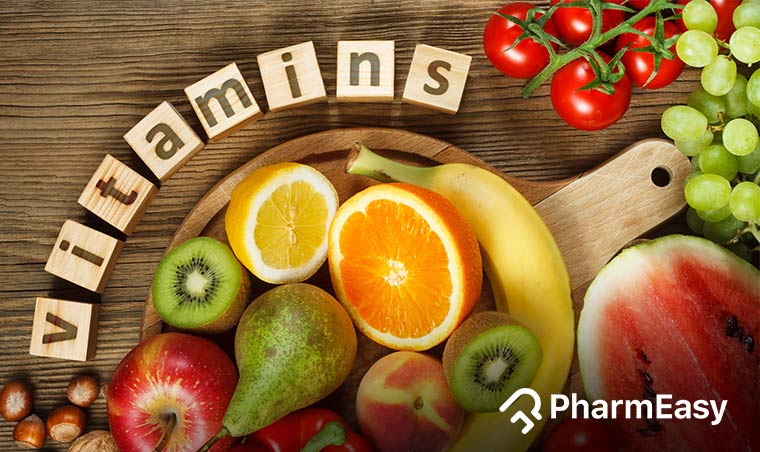
Heart disease is one the most common causes for death in the United States. A heart attack claims a life every 40 seconds. Some say that heart disease is the "silent killer." Also, it is crucial to manage your blood pressure. Aim for a blood pressure level of 120 to 80. The American Council on Exercise recommends that you do 150 minutes of moderately intense physical activity each week. But, it is important to check with your doctor before beginning a new exercise plan.
Your doctor will take approximately 17.5 minutes to examine your body. They will examine you, discuss your symptoms, check your vital signs, answer your questions, and take any other pertinent information. Also, limit the consumption of fried and processed foods. Also, limit your consumption of alcohol as well as red meat. They can raise your blood pressure. It is best to avoid medications that cause high blood pressure, or weakening of the heart. Your doctor will be able to provide you with the right prescription.

You should also get your cholesterol levels checked regularly. While this may seem a bit excessive, it is an important part of heart health and is often free through your insurance. For your heart health, it is vital to get your cholesterol checked. High cholesterol can lead to blockages in your arteries which can reduce blood flow and cause damage. You should practice heart health tips on a regular basis. You should inform your doctor if you have any history of heart disease.
Your heart health is crucial for your overall health. By increasing your physical activity, you can achieve this. Even if it is not your favorite thing to do, you still have the option of doing brisk walking, swimming or dancing. You can also paint your room or garden if you don't like to exercise. If you don’t have enough time for exercise, consider walking the distance between where your home is and your workplace. This will strengthen your heart.
Walking is a great way for your heart to be healthier. Walking can be done on foot, by bike, on foot, or in a group. Walking can improve your health, energy, and prevent many illnesses. It's also possible to walk as much as you want - it's more fun than sitting still. Maintaining a healthy heart can bring you many benefits that will improve your quality and life.

Healthy eating habits can also help to lower your risk of developing heart diseases. A diet rich with fruits and veggies is associated to lower heart disease risk. Wholegrain cereals are rich in fiber, which is good for your heart. It is also a good way of avoiding weight gain. It helps you to have more energy and fight fatigue. It has numerous other benefits.
FAQ
Why Metabolic Well-being is the Key to Aging Well
People are living longer today than ever. However, as they age, so do their chances of getting sicker. Even though we have made significant advances in medical science it is becoming clearer that our current approach doesn't work.
We have to change how we see health and aging. Healthy aging is possible only if we look at our metabolic health, not just weight loss, but also overall well-being.
And if you want to live an active life for decades to come, you should ensure that your metabolism stays strong and healthy throughout your entire lifetime.
The good news is that there are many ways to improve your metabolic health. One way to improve your metabolic health is to incorporate these seven foods into your daily diet.
-
Resveratrol has been found to be a key ingredient in blueberries, and it has been shown that it can help increase cell longevity. They are rich in antioxidants as well as vitamins C & E.
-
Beans like lentils and pinto beans are excellent fiber and plant-based protein sources. These nutrients are important for maintaining blood sugar levels that don't spike, crash or change.
-
Broccoli contains sulforaphane, shown in studies to protect cells against DNA damage. It may even slow down the progress of cancer.
-
Chia Seeds have high levels of omega-3 fatty oils and fiber. They are also rich in antioxidants, protein, and fiber. All of these nutrients are good for heart health, brain function, gut health, and overall health.
-
Green Tea contains polyphenols called catechins. Studies show that catechins in green Tea can reduce the risk of developing diabetes, stroke, cognitive decline, and bone fractures.
-
Salmonis packed with vitamin D, low in saturatedfat and one of best sources of lean meat.
-
Walnuts are rich in omega-3s as well as antioxidants such alpha lipoic acids (ALA). ALA protects against inflammation and boosts energy production.
Are There Any Benefits to Yoga?
Yoga has existed since ancient times. It has only recently been more popular. Celebrities and ordinary people love yoga.
Yoga is great for strengthening and stretching your muscles. It also relaxes your mind and makes you calmer.
The primary difference between yoga and other forms is the focus on breathing techniques in yoga.
You can practice various poses to improve your flexibility and balance.
What kind of food should I avoid when trying to lose weight?
Trans fats should be avoided. Trans fats increase LDL cholesterol (the bad) and decrease HDL cholesterol (the healthy).
Trans fats can also be found in deep-fried food, fast food, packaged bakery goods, snack cakes, as well as other processed foods.
These unhealthy fats cause inflammation which leads to heart disease, diabetes, and other health problems.
Artificial sweeteners are also to be avoided. Artificial sweeteners may increase your chance of getting cancer.
These chemicals can be found in soft drinks, chewing gum, and candy bars. They appear in many other foods, including meat, poultry, fish, and eggs.
Artificial sweeteners are saccharin (cyclamate), sorbitol and aspartame.
The American Heart Association advises against using these chemicals, as they could damage DNA.
What's a good workout plan for 7 days?
A seven-day exercise plan should include cardiovascular training (running/biking/swimming), strength exercises (using weight machines, free weights) and one flexibility/core program (yoga or Pilates). Each activity should be performed at least once each week. Each session should not last more than 45 minutes.
Cardiovascular Exercise: Running/Biking/Swimming
Aim to do at least 60 minutes per week of cardio. You can aim for 75 minutes a week for best results. Cardio exercises can be used to increase blood flow, stimulate muscle growth, and improve blood circulation.
Strength Training
Cardio exercises focus on the heart and lungs while strength training targets muscles and bones. Strength training is a great way to build lean muscle mass that helps you burn calories even if you are not actively exercising.
Flexibility and core workouts
You can strengthen your entire body by strengthening flexibility and core exercises. Both yoga and Pilates are excellent options.
Statistics
- The PRS enabled risk stratification for overall prostate cancer and lethal disease with a four-fold difference between men in the highest and lowest quartiles (HR, 4.32; 95% confidence interval [CI], 3.16-5.89). (pubmed.ncbi.nlm.nih.gov)
- An estimated calorie range for moderately active adult males falls between 2,200 to 2,800 calories per day, depending on age. (eatright.org)
- Cardmembers earn 5% Back at Amazon.com with a Prime Credit Card. (amazon.com)
- By John Thompson Take a whopping 38% off a set of PowerBlock Pros. (menshealth.com)
- Are You One of the 20% of Guys (mh.co.za)
External Links
How To
What nutrients is a man supposed to consume daily?
Men require daily nutrition for healthy growth and development. Your body needs vitamins, minerals and nutrients as well as carbohydrates, proteins, fats, carbohydrate, fiber, and other essential components.
You also need specific nutrients for different times in the day. To give you an example, the body uses energy it receives from food to make hormones and antibodies. Protein is needed to build muscles and repair tissue damaged when you wake up.
Your body stores extra energy as glycogen and breaks down fat at night. Your body requires fewer calories, but still needs enough nutrients. You might have an occasional snack during the night if your stomach is feeling hungry.
You need to eat enough carbs and protein when you exercise. If you exercise hard, you might feel muscle soreness.
To prevent this from happening, you need to consume carbs or protein within two hours. To provide energy, your body will begin to break down stored glycogen.
After your workouts, you should eat protein immediately. This prevents the breakdown of muscle tissue that occurs while you sleep.
Your body makes lactic acid when you are doing intense physical activities. Your body can build up lactic acid in the bloodstream which causes fatigue. You can avoid this by eating carbohydrates-rich foods like fruits and veggies.
Carbohydrates are a good source of energy to help you recover from hard exercise.
In addition, you may want to include lean meats, fish, eggs, milk, cheese, yogurt, beans, nuts, and seeds into your diet.
These foods all contain high-quality proteins. Protein promotes muscle growth, and helps repair damaged tissues. Protein also supplies the amino acids your body requires to make sex hormones, such as testosterone.
A healthy skin, nails and joints requires sufficient dietary fats. Healthy men need to consume between 20%-35% of their total calories from fat.
Fat helps keep your heart strong and protects against cancer. It keeps your brain healthy and functioning well.
Vegetable oils such as sunflower oil and soybean oil can provide most of your fat needs.
These oils are high in monounsaturated fatty acids (MUFAs). MUFAs can lower cholesterol levels and reduce inflammation. They protect your cells and prevent damage from free radicals.
Saturated fats (SFAs), are found mainly in animal products such as meat, milk products, and butter. SFAs can increase LDL ("bad") cholesterol as well as triglycerides. They are also good for weight loss and belly fat.
Plant-based oils such as vegetable oil, nuts, seeds, or grains are rich in polyunsaturated fats (PUFAs). PUFAs are good for your heart health and help to reduce inflammation. They also reduce blood sugar, cholesterol, and other inflammatory factors.
Low HDL ("good") cholesterol can lead to erectile problems in men. High consumption of saturated fats increases bad cholesterol, which lowers the level of good cholesterol.
Men who eat large quantities of red meats or pork may develop prostate problems. High temperatures can cause nitrates to become nitrosamines. These compounds can lead to cancer.
Most processed meats have nitrites and harmful chemicals. These chemicals should be avoided.
The American Heart Association recommends eating no more than 2 servings of red meat per week. Choose poultry, fish and legumes instead.